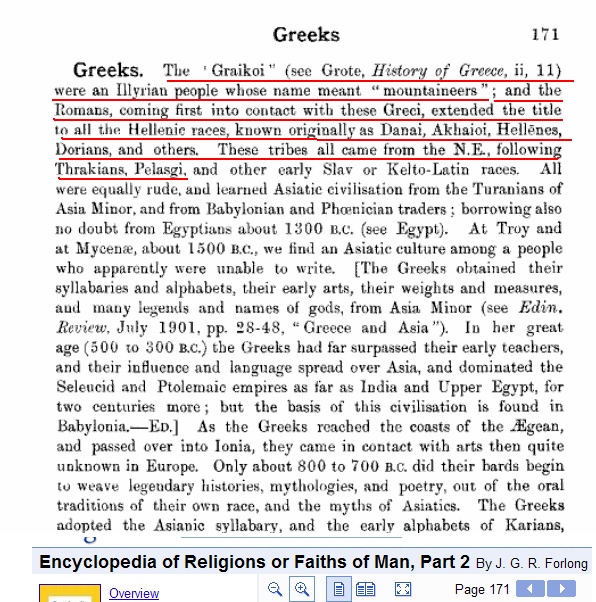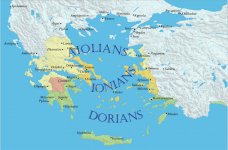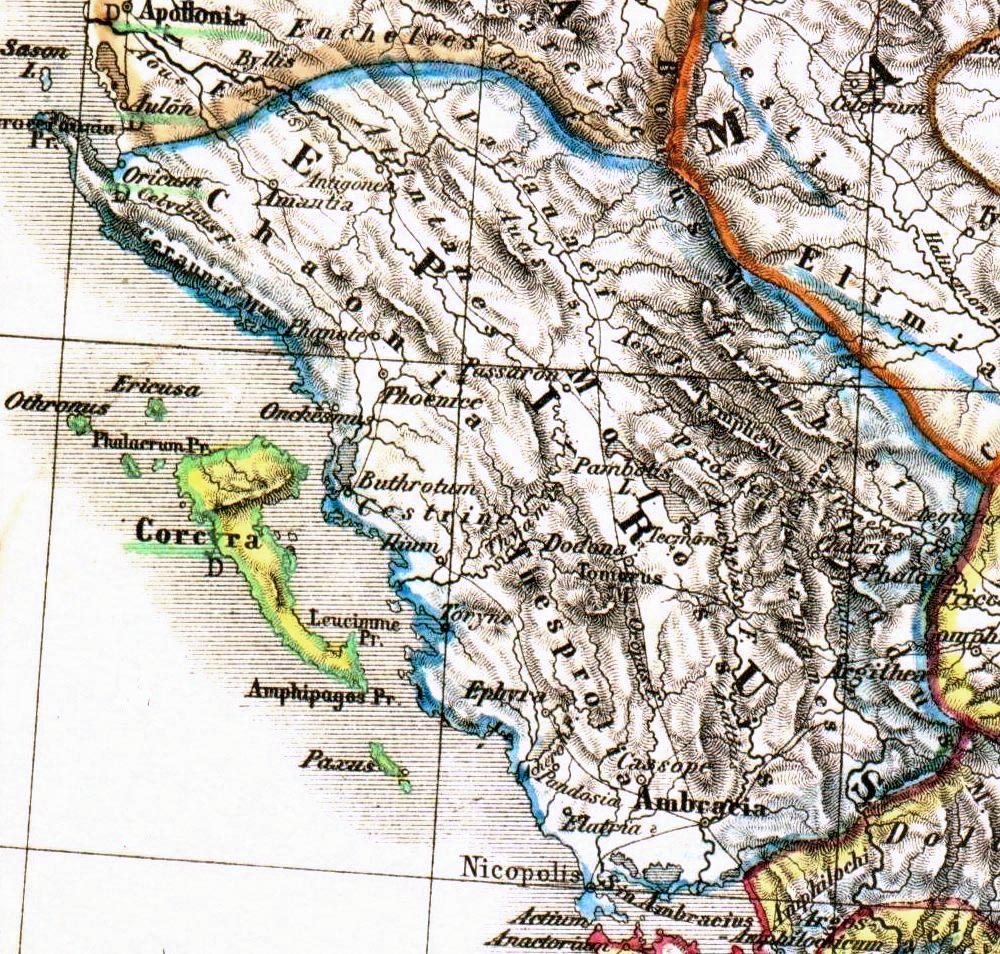Let's do some corrections according Stephen of Byzantium, also known as Stephanus Byzantinus (Greek: Στέφανος Βυζάντιος; fl. 6th century AD) was the author of an important geographical dictionary entitled Ethnica (Εθνικά).look at map







Appian, The Civil Wars
book 2, chapter 6
The consuls crossed safely to Dyrrachium,
which some persons, by reason of the following error, consider the same as Epidamnus.
A barbarian king of the region, Epidamnus by name, built a city on the sea-coast and named it after himself. Dyrrachus,
the son of his daughter and of Neptune (as is supposed), added a dockyard to it which he named Dyrrachium. When the brothers of this Dyrrachus made war against him, Hercules, who was returning from Erythea, formed an alliance with him for a part of his territory; wherefore the Dyrrachians claim Hercules as their founder because he had a share of their land, not that they repudiate Dyrrachus, but because they pride themselves on Hercules even more as a god. In the battle which took place it is said that Hercules killed Ionius, the son of Dyrrachus, by mistake, and that after performing the funeral rites he threw the body into the sea in order that it might bear his name.
At a later period the Briges, returning from Phrygia, took possession of the city and the surrounding country. They were supplanted by the Taulantii, an Illyrian tribe, who were displaced in their turn by the Liburnians, another Illyrian tribe, who were in the habit of making piratical expeditions against their neighbors, with very swift ships. Hence the Romans call swift ships liburnic?, because these were the first ones they came in conflict with.
The people who had been expelled from Dyrrachium by the Liburnians procured the aid of the Corcyreans, who then ruled the sea, and drove out the Liburnians.
The Corcyreans mingled their own colonists with them and thus it came to be considered a Greek port; but the Corcyreans changed its name, because they considered it unpropitious, and called it Epidamnus from the town just above it, and
Thucydides gives it that name also. Nevertheless, the former name prevailed finally and it is now called Dyrrachium.





Reference: http://books.google.it/ebooks/reader?id=lRVAAAAAYAAJ&printsec=frontcover&output=reader
>Now, seeing the abuse with the denomination "greek" by wikinazi-onalist let you show something:

Last edited:













